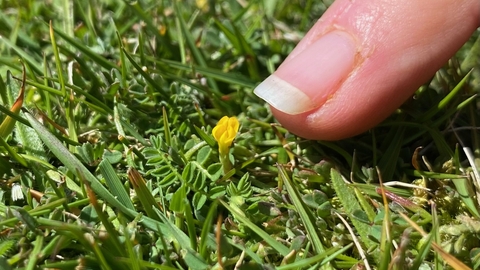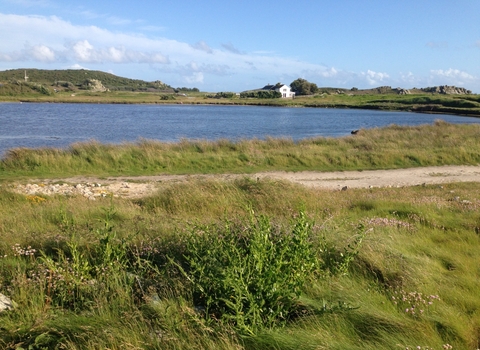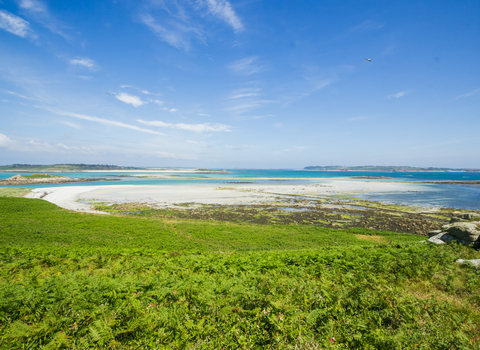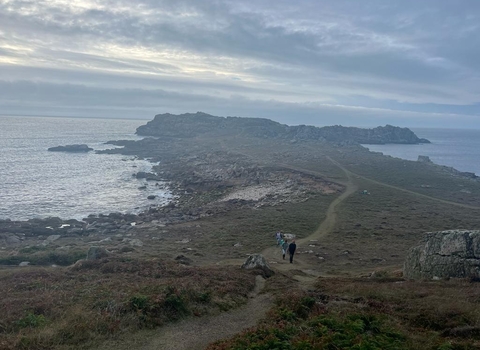
Rushy Bay & Heathy Hill
Know before you go
Dogs
When to visit
Opening times
Open year roundBest time to visit
SpringAbout the reserve
Situated at the southern and south-western tip of Bryher, the site comprises a low exposed granite hill backed by a small sand dune and dune grassland system that overlies a storm boulder beach. The area between Rushy Bay and Great Porth are particularly important for the very rare dwarf pansy, which grows nowhere else in Britain.
The dune grassland also supports abundant plantlife, including sand sedge, sheep’s sorrel, buck’s-horn plantain, sea stork’s-bill and the nationally scarce sea spurge, Portland spurge and western clover. The dunes that back the storm beach are dominated by marram grass and sea holly, in addition to sea kale at the back of Stony Porth. The exposed summit of Heathy Hill supports a small area of ‘waved’ heath, where the nationally rare orange bird’s-foot occurs together with the small adder’s-tongue fern and autumn lady’s-tresses.
Livestock management is crucial in the area to maintain the very short sward to support species like dwarf pansy and orange bird’s-foot. Since the winter storms of 2014, we have seen the establishment and surprisingly rapid spread of sour fig, which we are now controlling annually through initial removal, followed up by control of new regrowth from seedlings and roots.
Over the coming years, we are aiming to remove scrub from the summit of Heathy Hill and in the dunes at the back of Rushy Bay to prevent European gorse, bramble and honeysuckle from spreading. This will maintain the diversity of wildflower species and maritime grassland.



